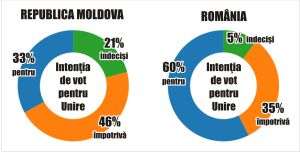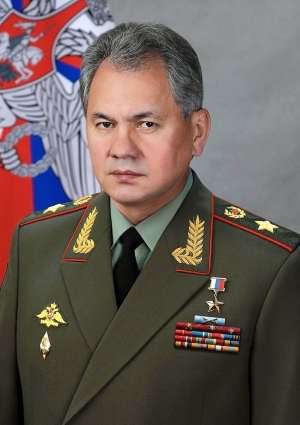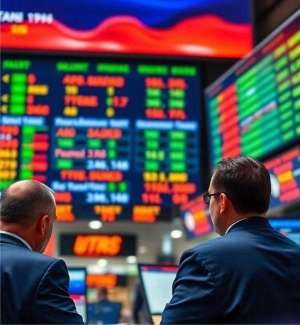The breakup of the coalition, the meeting in the White House between Klaus Iohannis and Donald Trump and the IMF report concerning the outlook for our economy are the most important events which took place in August, that concern Romania's economy and politics directly.
On August 26th, the PSD-ALDE coalition reached its end. ALDE head Călin Popescu Tăriceanu back then announced that his party would leave the government, after its leaders discussed the matter in the meeting of the Central Political Bureau. Three of the four ministers of the Alliance, namely Graţiela Gavrilescu - former deputy prime-minister and minister of the environment, Anton Anton - former minister of energy and Viorel Ilie - former minister for the relation with parliament, have resigned from the government, while Ramona Mănescu - foreign affairs minister, elected to stay with the government, by resigning from ALDE.
It seems the decision to leave the government came up after the PSD did not agree to ALDE's request for a government restructuring and a new governing program.
One day prior to the breakup of the coalition, on August 25th, prime-minister Viorica Dăncilă was appointed the candidate of the social-democrats for the presidential elections of November.
Another important political event of the past month was the high level meeting in Washington between Klaus Iohannis and Donald Trump and the signing of the joint statement concerning the Strategic Partnership between the two heads of state. The event caused several controversies, through the topics that were discussed and Romania's new positioning in foreign policy. These controversies have also been fueled by the subsequent statements made by the US president, concerning the re-inclusion of Russia when it comes to economic cooperation and the return to the G8 format, as well as the relations with China, which are also in trouble due to the implementation of the 5G technology using the technology and devices made in China.
When it comes to Romania, the most important aspects discussed by Iohannis with Trump have been the energy security of Romania by exploiting the natural gas in the Black Sea, the increase of the number of American troops in Romania, the Visa Waiver program, the implementation of the 5G technology and the rule of law.
• The IMF - concerned over certain aspects of the Romanian economy
Experts of the International Monetary Fund (IMF) have published, on August 30, a report concerning Romania's economic situation, drawn up as a result of the visit made in Bucharest made by the official delegation of the IMF between May 27 - June 7. The IMF expresses concerns over the effects the application of the new law of pensions would have. According to the quoted report, even though Romania can boast an impressive economic growth, it can be affected in the medium term by the increase in the macroeconomic imbalances caused by the increase in government expenditures and investor hesitations.
The mission of the IMF remarked that "the macroeconomic imbalances have become increasingly obvious", as specialists in the institution point out that "the current account and budget deficits have deepened and inflationary pressures are rising".
Among other things, the IMF expects this week the economic growth would remain above potential, on the basis of fiscal stimulus, warning that in the medium term, the economic growth would slow because of investments and hesitant reforms. The quoted report also further states: "The growing imbalances erode the available maneuvering room and increase the risk of the convergence with the EU declining, caused by the excesses of domestic policies or the changes in the trust level of global investors".
The experts of the Fund further point out that the passing of Emergency Government Ordinance 114 has caused the devaluation of the leu and reluctance on the stock exchange, even if some of the stipulations have been fixed this year.
In this context, the IMF recommends a series of measures, such as improvement of the tax administration for better tax collection and an improved effectiveness of public spending, maintaining the independence of the central bank, the reevaluation of the tax on financial assets and of the Law of pensions, to rebalance the social needs for the sustainability of the hikes.
The IMF has improved its estimates for the growth of the Romanian economy, from 3.1% to 4% for this year, but has increased the forecast from 3.3% to 4.2%.
On the other hand, the Romanian authorities have expressed a more optimistic vision, according to which the economic growth will be more powerful this year, from 5.5%, and will exceed 5% in the medium term.
Liberal deputy Marilen Pirtea, vice-president of the Chamber of Deputies, said in the beginning of September amplifies the precarious health of the Romanian economy, after the experts of the NBR have indicated the existence of premises for the beginning fiscal and budgetary crisis, a fact also reiterated by the IMF document, which confirms the "image of a budgetary bugetar finanţat din împrumuturi foarte scumpe."
• A deficit of 18.14 billion lei in the first seven months of the year
The Ministry of Public Finance (MFP) has published on August 27th, the execution of the consolidated state budget after the first seven months of 2019, indicating a deficit of 18.14 billion lei, namely 1.76% of the GDP, down 0.2 % of the GDP compared to the first semester, according to data published by the Ministry of Public Finance. Between January-July 2018, the budget deficit stood at 11.9 billion lei, respectively 1.26% of the GDP.
The revenues of the general consolidated budget stood at 180.1 billion lei at the end of July, representing 17.5% of the GDP, compared to 17% of the GDP in the same period of 2018.
Expenses of the consolidated general budget have reached 198.2 billion lei, with 14.7% higher over the same period of the previous year.
Among other things, in August, the Ministry of Public Finance proposed, through a draft law, the amendment of the "First Home" program and the changing of its moniker in the Program "One family, one home", so that even this governmental program would be better oriented towards the social nature.
According to the document, the eligibility terms will be revised by introducing an income threshold for the beneficiaries and of the maximum purchase price of the home which can be acquired through the program. It also being proposed to subsidize the interest rate consisting of the cutting of the interest rate throughout the duration of the Program for one child families, as well as for those with two or more.
The minimum 5 downpayment for the acquisition price for the home is another criterion mentioned in the document. The purchase price may not exceed 70,000 Euros in lei at the NBR exchange rate valid on the date of the conclusion of the sale agreement, and the guaranteed amount may not exceed 66,500 Euros in lei.
Throughout the duration of the program, the interest rate for families with one child will be reduced by 0.5 percentage points, and by 1% for the families with two or more children.
• NBR: "The lending growth rate is slowing down"
Romania has seen in July as well the highest annual inflation rate in the EU - 4.1%, up over June (3.9%) and over two times higher than the EU median, according to data from the European statistics office, Eurostat, sent in August. After Romania, the highest inflation rate was seen in July in Hungary (3.3%), Slovakia and Latvia (3%), Holland, Czech Republic and Bulgaria (2.6%).
The lowest inflation rates were seen in Portugal (-0.7%), Cyprus (0.1%), Italy (0.3%), Denmark and Greece (0.4%), Ireland (0.5%).
The median inflation rate of the EU, in July, was 1.4% (1.6% in June), and 1% in the Eurozone (1.3% in June).
The annual inflation rate, which measures the evolution of consumer prices over the last year, has increased in July to 4.12%, after having dropped to 3.84% in June, as fuel prices increased 4.79% from the beginning of the year, according to the data published in August, from the National Statistics Institute (INS).
In august, the NBR stated that the lending growth rate is slowing down, and the macroprudential measures taken in 2018 by the NBR, applicable starting with 2019, are the main discouraging factor.










































